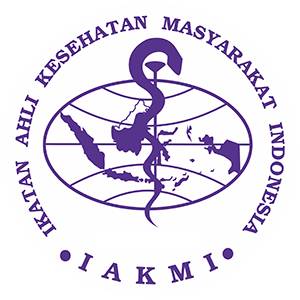Relation of Refraction Abnormalities and Nutritional Status With Learning Achievement In Covid-19 Pandemic Era
DOI:
https://doi.org/10.30787/gaster.v19i2.614Keywords:
, kelainan refraksi, status gizi, prestasi belajar, anak SD, Covid-19Abstract
Refraction abnormalities are the second most common cause of limited vision after cataracts and being a health problem around the world, including Indonesia. Vision is the main factor of information input and learning process. Vision ability develops optimally until the age of 9 years, delays in refraction correction can cause reduced ability to absorb learning material and further will have an impact on learning achievement. However in pandemic era, learning system is turn into online system. Another factor that affects it is nutritional status, a body state caused by a balanced nutrient intake and needs. This study aims to prove the theory of the effect of refractive errors, nutritional status, on learning achievement. A cross-sectional design that linked refractive errors (myopia, hypermetropia, astigmatism) and nutritional status to learning achievement in elementary school student. The sample consisted of 26 students in grades 3-6. The refractive spearman test with learning achievement got a significance value of 0.733(p>0.05), while nutritional status and learning achievement has a significance value of 0.679(p>0.05) which means there are no meaningful relationship in both variable with learning achievement. Multivariate analysis was not performed because of the bivariate analysis were not significant. There was no correlation between students’ refractive abnormality and nutritional status with their learning achievement in pandemic era.
References
Akuta GC. 2015. Prevalence Of Refractive Errors Among Primary School Children (7-14 Years) in Motherwell Township, Eastern Cape, South Africa. University of Limpopo. http://ulspace.ul.ac.za/handle/10386/1751 (21 April 2020)
Amany T. & Sekartini R. 2017. Hubungan antara Status Gizi dengan Prestasi Belajar Siswa SDN 03 Pondok Cina Depok Tahun 2015. Sari Pediatri, 18(6), p.487.
Bogdănici, C., Săndulache D., and Nechita C. 2017. Eyesight quality and Computer Vision Syndrome. Romanian Journal of Ophthalmology, 61(2), pp.112-116.
Cakrawati. 2012. Bahan Pangan, Gizi dan Kesehatan. Bandung : Alfabeta. p. 55
Dobewall H, Lindfors P, Karvonen S, Koivusilta L, Vainikainen MP, Hotulainen R, Rimpelä A. 2019. Health and educational aspirations in adolescence: A longitudinal study in Finland. BMC Public Health. 19:1447. doi: 10.1186/s12889-019-7824-8.
Ezinne NE & Mashige KP. 2018. Refractive error and visual impairment in primary school children in Onitsha, Anambra State, Nigeria. African Vision and Eye Health. Diakses di : https://avehjournal.org/index.php/AVEH/article/view/455
Hart C, Berger D, Jacob B, Loeb S, and Hill M. 2019. Online Learning, Offline Outcomes: Online Course Taking and High School Student Performance. AERA Open, 5(1), p.233285841983285.
Hopkins S, Black AA, White SLJ, Wood JM. 2019. Visual information processing skills are associated with academic performance in Grade 2 school children. Acta Ophthalmol. 97:e1141–e1148. doi: 10.1111/aos.14172.
Joseph L. 2014. Refractive Errors and Academic Achievements of Primary School Children. Stat Pearls Publishing LLC ; A NCBI Journal. Diakses di :https://www.ncbi.nlm.nih.gov/pubmed/26182821
Kementerian Pendidikan dan Kebudayaan Republik Indonesia. 2020. Surat edaran No.4 tahun 2020 : Pelaksanaan Kebijakan Pendidikan dalam Masa Darurat Penyebaran Coronavirus Disease (Covid-19). https://jdih.kemdikbud.go.id/arsip/SE%20Menteri%20Nomor%204%20Tahun%202020%20cap.pdf
Kirag N & Temel AB. 2018. The effect of an eye health promotion program on the health protective behaviors of primary school students. Journal of education and health promotion. Diakses di: https://www.ncbi.nlm.nih.gov/pmc/articles/PMC5868223/#
Lubis ENMS. 2015. Hubungan Tajam Penglihatan dengan Tingkat Prestasi pada Siswa Berprestasi SD Panca Budi Medan tahun 2014. Medan; Universitas Sumatera Utara. http://repository.usu.ac.id/handle/123456789/57660 (21 April 2021)
Mccrann S, Loughman J, Butler J, Paudel N, and Flitcroft D, 2021. Smartphone use as a possible risk factor for myopia. Clinical and Experimental Optometry, 104(1), pp.35-41.
Pristiwatin, Susi D, Widyawati, Yuni I, Wahyuni, Dwi E. 2013. Penggunaan Kaca Mata Koreksi pada Anak Usia Sekolah dengan Miopia terhadap Prestasi Belajar Di SDN Pacar Keling VI Surabaya. Critical & Medical Surgical Nursing Journal, Vol. 1, No 2. Diakses di : http://journal.unair.ac.id/downloadfull/CMSNJ6464-49ab1c4f9ffullabstract.pdf
Republik Indonesia. 2020. Keputusan Presiden Republik Indonesia No.11 tahun 2020 : Penetapan Kedaruratan Kesehatan Masyarakat Corona Virus Disease 2019 (Covid-19). Diakses di https://jdih.setkab.go.id/PUUdoc/176084/Keppres_Nomor_11_Tahun_2020.pdf
Riset Kesehatan Dasar (Riskesdas). 2013. Badan Penelitian dan Pengembangan Kesehatan Kementerian RI tahun 2013. Diakses di :
Rumondor NE & Rares LM. 2014. Hubungan Kelainan Refraksi dengan Prestasi Belajar Anak di SMP Kristen Eben Haezar 2 Manado. Manado: Universitas Sam Ratulangi Manado. Diakses di : https://ejournal.unsrat.ac.id/index.php/eclinic/article/view/3609
Supariasa. 2012. Penilaian Status Gizi. Jakarta : EGC. p. 17, 32 – 79
Wardany, Yulia, Arfiza, Humairah N, Arfianti. 2018. Pengaruh Kelainan Refraksi terhadap Prestasi Belajar Murid Sekolah Dasar X Pekanbaru tahun 2017. Jurnal Kesehatan Melayu, Vol. 1 No. 2. Available from : http://jkm.fk.unri.ac.id/index.php/jkm/article/view/108/pdf
White SLJ, Wood JM, Black AA, 2017. Hopkins S. Vision screening outcomes of Grade 3 children in Australia: Differences in academic achievement. Int. J. Educ. Res. 83:154–159. doi: 10.1016/j.ijer.2017.03.004
Wood JM, Black AA, Hopkins S, White SLJ. 2018. Vision and academic performance in primary school children. Ophthalmic Physiol Opt. 38:516–524. doi: 10.1111/opo.12582.














